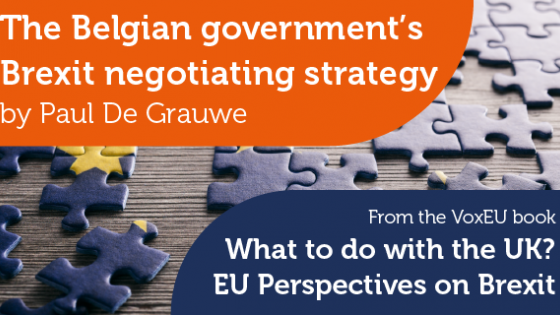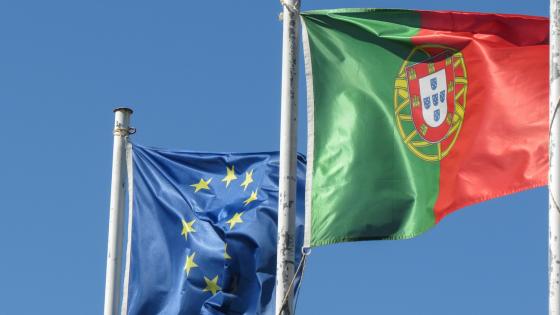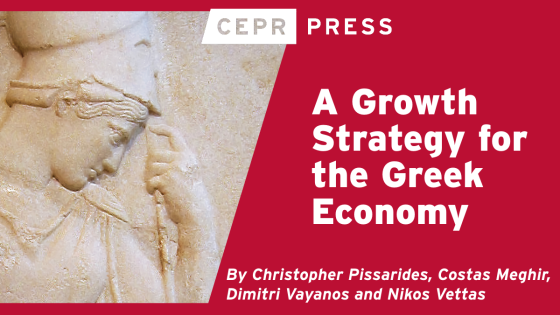Editor's note: This column first appeared as a chapter in the VoxEU eBook What To Do With the UK? EU perspectives on Brexit, available to download here.
In this column, I first analyse the question of the negotiating strategy the Belgian government should take vis-à-vis the UK government in the process of achieving new trade relations with the UK. Second, I discuss which strategy the Belgian government is likely to take.
The negotiating strategy of the Belgian government should be based on the idea that it is in the interest of the country to maintain a strongly integrated EU. This implies that the UK government should be confronted with a clear choice. Either the UK government adopts a model like the Norwegian one, or it stands alone and negotiates new trade agreements with the EU and about 50 other countries (or groups of countries) in the framework of the WTO rules. The Belgian government must make it clear that there is nothing in between these two choices. There can be no ‘special deal’ with the UK.
If the UK accepts a Norway-type model, it will retain full access to the Single Market. In that case, there are no obstacles for British goods and services in the EU and for EU goods and services in the UK. But the price the UK pays in this model is the free movement of EU citizens in and out of the UK and acceptance of the rules on standards, health and safety that are decided in Brussels, without being involved in the decision making process.
It is very unlikely that the UK government will accept this model. In fact, in her speech at the Conservative Party conference of 2 October, Prime Minister Theresa May made it very clear that the British government wants the UK to “take back control over its borders, its laws and its money”. She announced two important principles that will guide future negotiations. First, the UK government will establish full control over immigration to the UK. Second, the jurisdiction of the European Court of Justice (ECJ) in the UK will end when Brexit is finalised.
It is clear that the second principle in particular makes it impossible for the UK to remain in the internal market, for the following reason. The Single Market is based on a system of common rules governing the health and safety of goods and services, competition and norms and standards. The European Court of Justice oversees the application of these rules in all countries, and therefore has jurisdiction in these countries. The Court therefore plays the role of referee to ensure that the common rules are applied correctly. The Single Market can only work if member states accept in advance the authority of the referee. By rejecting the jurisdiction of the European Court of Justice, or any other foreign court, the UK disqualifies itself from the Single Market.[1]
All this implies that there is very little choice left for the UK government, and the Belgian government should make this clear. The UK will have to negotiate a trade agreement with the EU, like any other sovereign country. This is the case with Canada and the US today. Negotiations with these countries are difficult and drag on for years. This will also be the case for the UK. It has chosen full sovereignty and refuses to accept a supranational authority. It should be treated as such.
Britain may try to reach a ‘special deal’ with the EU in which it would maintain the right to introduce controls over immigration and sovereignty on the application of Single Market rules. This is the ‘intergovernmental’ approach, and it is the dream of the UK authorities. It would take the form of arrangement in which Britain retains a veto on any new decision from Brussels regarding the rules of the Single Market, while enjoying the benefits of the Single Market.
The reasons why the Belgian government, or any other EU member state government, should not accept being dragged into negotiating a special deal with the UK are obvious. When the UK joined the EU in 1974, its main strategy was to prevent the Union from becoming too strong. The UK political elite decided that this could best be achieved from inside the Union. Now that the UK is departing, the century-old British strategy remains the same – i.e. to weaken the forces that can make Europe stronger. The UK can achieve this by insisting on a special deal between the UK and the EU whereby the UK maintains the benefits of the Union while not sharing in the costs. Such a deal, if it comes about, will signal to other member countries that by exiting they can continue to enjoy the benefits of the Union without the costs. In addition, such a deal would reinforce the inter-governmental approach in EU decision making. Such a prospect would fatally weaken the EU. This would certainly not be in the long-term interests of a country like Belgium.
Unfortunately, the long term is rarely a guide in policymaking. Short-term interests are more likely to prevail, including in Belgium. Mercantilist pressures are likely to be very important. Trade between Belgium and the UK is quite unbalanced. In 2015, Belgian exports to the UK amounted to €31 billion, making the UK Belgium’s fourth largest trading partner (after Germany, the Netherlands and France). At the same time, Belgium imported only €17 billion from the UK, resulting in a positive trade balance of €15 billion with the UK. As a result, the political pressure from the Belgian export lobby to accommodate the desires of the UK government is likely to be strong. In addition, by far the largest part (close to 80%) of Belgian exports to the UK are generated in Flanders. This creates a potential political split along linguistic lines over the question of the Belgian government’s negotiating stance towards the UK government, with Flemish politicians more likely to pursue an accommodating stance, and French-speaking politicians more prone to following the French government’s hard stance in the Brexit negotiations. Which of the two will prevail is hard to predict. Belgian politics is full of surprises that have much to do with a double political cleavage – one along linguistic lines, and the other along the right-left axis.
In a way, Belgium is a microcosm of what can happen at the EU level. The need for two linguistic groups to pursue common policies creates permanent tensions that arise from simultaneous centrifugal and centripetal forces. During the last decades, the centrifugal forces have dominated the centripetal ones. The Brexit negotiations risk reinforcing the centrifugal forces. However, they do not have to lead to this outcome if Belgian policymakers succeed in taking a long-term view of the interests of the country.
Reference
Pisani-Ferry, J., N. Rˆttgen, A. Sapir, P. Tucker and P. Wolff (2016), “Europe after Brexit: a proposal for Continental Partnership”, Bruegel External Publication, Brussels.
Endnote
[1] Pisani-Ferry at al. (2016) have argued recently that the free movement of persons is not an essential ingredient of the Single Market. They propose that the UK could remain in the Single Market while imposing some limitations on the free movement of persons. This may be true. However, the refusal of the UK to accept any jurisdiction of the European Court of Justice (or any other foreign court) by itself is sufficient to disqualify the country from membership of the Single Market.



